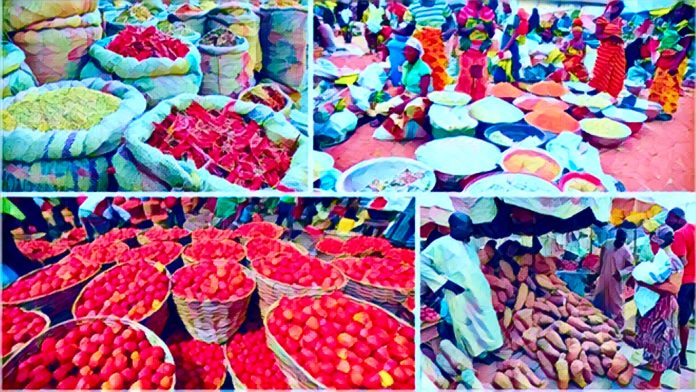KEY POINTS
- Food is starting to get a lot more expensive, with chicken prices doubling.
- In that time, airfares have jumped 218% while transport fares rocketed.
- Government initiatives don’t help to alleviate the inflation driven financial strain.
With Christmas fast approaching, Nigerians face escalating food costs and rocketing transportation expenses: celebrations are a luxury for too many families.
Vendors and buyers at local markets in Abuja and Lagos said they could do nothing but groan over the unprecedented price hikes.
According to Mummy Somto, a trader at Agric Market, Ikorodu, Lagos poultry was becoming too expensive. “In fact, just last year, chicken went for N15,000 but now it costs N35,000.” She asked how to celebrate.
The rising prices are because of transportation problems, truck owner Alhaji Shehu had it to say at Mile 12 International Market. Prices have gone up as the costs of diesel, security checkpoints and other things balloon. He added that we’re all struggling.
Also, in some markets, rice now goes for as much as N125,000 per bag of 50kg, which is N70,000 higher than last year’s price. Traders are noticing a sharp sales drop as buyers are buying smaller quantities.
Holiday strain increased by transport costs
In addition, the financial burden has been increased further by transportation costs. If you thought road trips were cheaper, think twice as the completed stretch between Abuja and Lagos now costs between N46,500 and N60,000, a steep hike compared to the old N28,000-N35,000.
Even as airfares have risen, they have soared even higher, as one way tickets on popular routes such as Abuja Lagos now command between N285,000 and N285,000, representing a 218 percent increase since June.
Miriam Jagaba, a mother of four shopping in Abuja, voiced her frustration: “But last year I could afford a Christmas feast,” he added. Everything is twice as expensive this year. It’s heartbreaking.”
In return, the Federal Government introduced free CNG bus services and transport fare rebates for return trips. Yet these interventions haven’t alleviated the financial weight for many.
Inflation in Nigeria exceeds 40%, so beans, tomatoes and poultry are out of reach for the average Nigerian. But some families, like Mrs. Hannah from Daleko Market, are doing the best they can to celebrate. ‘Love will be shared and we will adjust our spending as best we can,’ she said.



